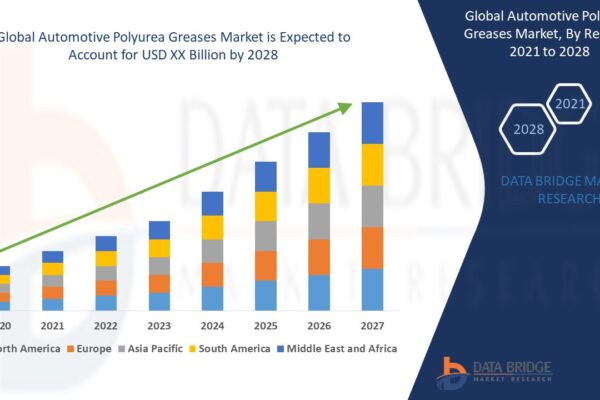The mobile app development landscape is evolving rapidly, and Flutter app development company are at the forefront of this transformation. With Artificial Intelligence (AI) becoming more integrated into everyday mobile experiences, it’s no longer a futuristic feature—it’s a necessity.
In 2025, Flutter apps will not only be expected to provide beautiful UI and smooth performance but also to deliver intelligent, adaptive, and personalized experiences. Whether you’re a healthcare mobile app development company, a retail startup, or a finance tech firm, incorporating AI into your Flutter apps is a strategic move that you can’t afford to ignore.
In this blog, we’ll explore the top 5 AI features that Flutter apps must integrate in 2025 to stay competitive, scalable, and user-friendly.
1. AI-Powered Predictive Analytics
What Is It?
Predictive analytics uses AI algorithms to analyze historical data and predict future outcomes. In mobile apps, this can mean forecasting user behavior, identifying potential app churners, or even anticipating user needs.
Why It Matters in 2025
Users expect apps to “know them”—anticipate their needs and deliver relevant content or features before they ask. Predictive analytics makes this possible.
Real-World Use Cases:
Healthcare Apps: Predict patient visits, medication adherence, and vital sign trends.
E-commerce Apps: Recommend products based on browsing and purchase history.
Fitness Apps: Suggest personalized workout plans.
Integration Tip:
Flutter developers can integrate AI-powered analytics with platforms like Firebase ML, TensorFlow Lite, or custom APIs that run predictions based on user data. A top Flutter app development company can help you create efficient models without compromising performance.
2. Natural Language Processing (NLP) for Smart Conversations
What Is It?
NLP enables apps to understand, interpret, and respond to human language. It’s the tech behind chatbots, voice assistants, and smart search features.
Why It Matters in 2025
In 2025, users expect seamless human-like interactions with apps. NLP helps create more dynamic and interactive applications that understand user intent better than ever.
Real-World Use Cases:
Healthcare Mobile Apps: AI chatbots triaging patient queries or explaining symptoms.
Finance Apps: NLP-driven assistants offering financial advice.
Education Apps: Smart tutors that understand student queries in natural language.
Integration Tip:
Use platforms like Dialogflow, GPT APIs, or IBM Watson integrated with Flutter to add intelligent voice or text-based interactions.
3. AI-Based Personalization Engines
What Is It?
Personalization engines analyze user data to customize the app’s content, layout, and behavior based on individual preferences.
Why It Matters in 2025
Personalized experiences increase user engagement and retention. An app that feels like it was “made just for me” keeps users coming back.
Real-World Use Cases:
Healthcare Mobile App Development Companies use it to personalize medication reminders and wellness tips.
News Apps serve content that aligns with a user’s reading history.
Music Apps like Spotify curate playlists with impressive accuracy.
Integration Tip:
Use machine learning algorithms to track user actions and preferences. Combine that with Flutter’s reactive UI components to dynamically update content on the fly.
4. Computer Vision for Visual Recognition
What Is It?
Computer vision allows apps to “see” and interpret images and videos using AI. It’s used for facial recognition, image tagging, object detection, and more.
Why It Matters in 2025
As camera-based applications grow—especially in fields like healthcare, education, and retail—computer vision will be a game-changer.
Real-World Use Cases:
Healthcare Apps: Analyze skin conditions or scan prescriptions.
Retail Apps: Try-on features for clothes, makeup, or accessories using AR and CV.
Security Apps: Face recognition for secure logins.
Integration Tip:
Leverage platforms like Google ML Kit or custom-trained TensorFlow Lite models to bring computer vision to your Flutter app. A seasoned Flutter app development company can guide you through implementation, ensuring performance and accuracy.
5. Automated Anomaly Detection
What Is It?
Anomaly detection is the process of identifying data points, events, or patterns that deviate from the norm. This is especially important in sectors like finance, cybersecurity, and healthcare.
Why It Matters in 2025
Users are relying more on apps to detect issues before they escalate. Whether it’s spotting fraudulent activity or identifying potential health crises, this AI feature enhances trust and security.
Real-World Use Cases:
Healthcare Mobile App Development Company apps can detect abnormal heart rates or sugar levels and alert patients/doctors.
Finance Apps detect suspicious transactions in real time.
IoT Apps monitor and flag abnormal device behavior.
Integration Tip:
Implement machine learning models that monitor user behavior or sensor data. These models can run locally or on the cloud and trigger alerts or interventions when irregularities are found.
Why AI + Flutter = The Future
Flutter’s cross-platform efficiency and flexible architecture make it an ideal framework for AI integration. When you combine Flutter’s UI power with AI’s intelligence, you’re creating smart apps that do more than just function—they learn, adapt, and predict.
By working with a specialized Flutter app development company, you ensure your application is future-proofed with AI capabilities that enhance both usability and profitability.
For healthcare organizations, partnering with a healthcare mobile app development company experienced in AI can help in complying with regulations like HIPAA while delivering smart, patient-focused solutions.
Bonus: Tools & Libraries to Watch in 2025
TensorFlow Lite – For on-device machine learning.
ML Kit by Google – A plug-and-play solution for image labeling, text recognition, etc.
Dialogflow – For NLP-based chatbots and voice UIs.
Firebase Predictions – For behavior prediction using existing Firebase analytics.
Final Thoughts
AI is no longer a luxury feature—it’s a competitive necessity. Whether you’re building an app from scratch or updating an existing one, these top 5 AI features are essential for ensuring your app remains relevant, smart, and engaging in 2025.
Flutter, with its robust ecosystem and ability to integrate advanced AI models, offers the perfect foundation for building such intelligent applications.
If you’re looking to develop a smart, scalable, and future-ready app, partnering with a Flutter app development company that understands AI is your next best move. And for those in the medical sector, collaborating with a healthcare mobile app development company can streamline compliance and innovation.
Frequently Asked Questions (FAQs)
1. Why should I integrate AI into my Flutter app?
AI enhances the app’s ability to learn from user behavior, personalize experiences, automate tasks, and provide smart recommendations, improving overall user satisfaction and engagement.
2. Is Flutter good for building AI-powered apps?
Yes. Flutter’s compatibility with third-party AI libraries, Firebase, and ML frameworks like TensorFlow Lite makes it a solid platform for AI integration.
3. What AI feature should I start with in my app?
Start with personalization or predictive analytics. These have the most immediate impact on user engagement and don’t require massive datasets initially.
4. How does AI benefit healthcare mobile apps?
AI can detect anomalies, improve diagnostics, streamline workflows, automate data entry, and offer personalized care through predictive modeling and chatbots.
5. How do I find the right Flutter app development company for AI apps?
Look for companies with proven expertise in both Flutter and AI, a strong portfolio, and an understanding of your industry’s unique challenges (especially important for healthcare, finance, and e-commerce).
Follow Us
Recent Posts
Tags
#technology airline airlines american airlines customer service anti-virus asacc sdca business Chat Coinbase coinbase support number Crypto.com support number Email Expedia expedia customer service faq fashion helping Jetblue norton or Chat Options: Step by Step Guide qb quickbooks QuickBooks Payroll Support Number Service Support travel travels UnitedAirlines United Airlines werty





Leave a Reply
You must be logged in to post a comment.